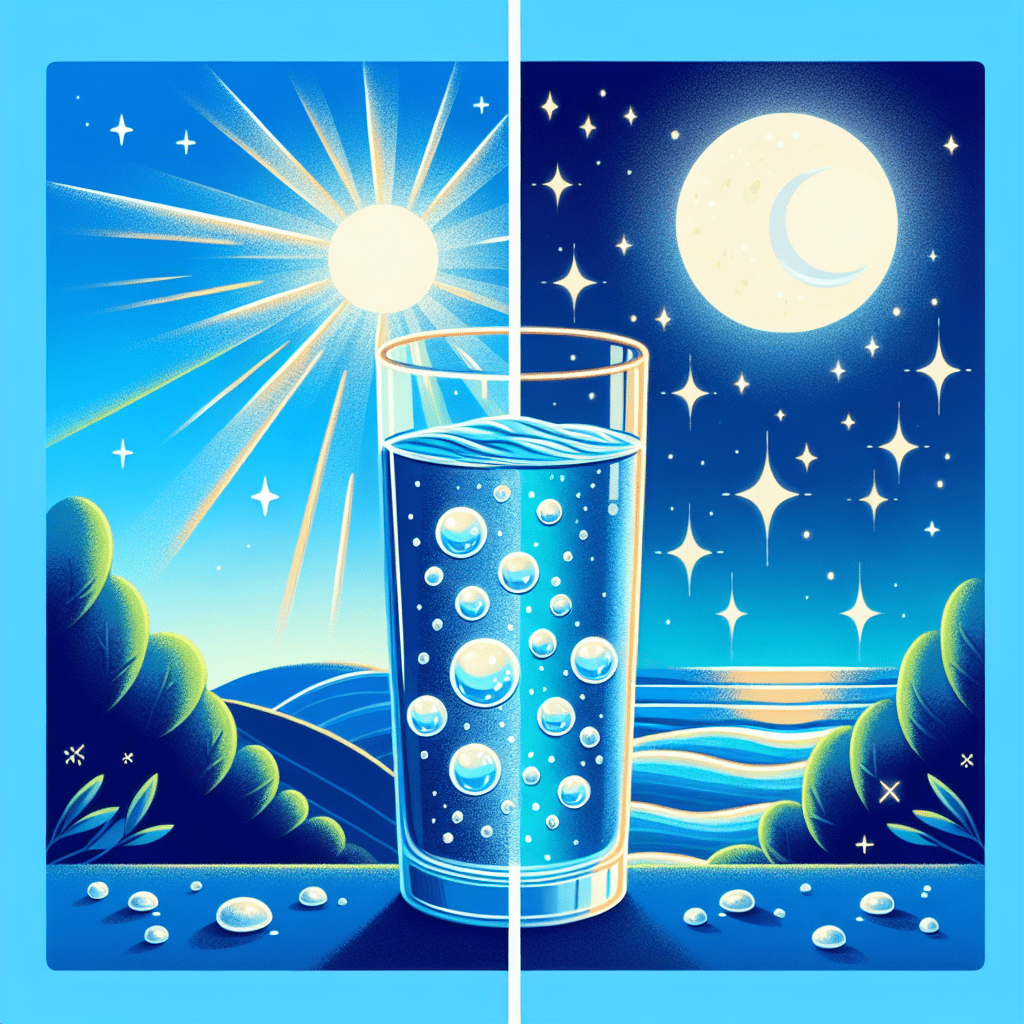The connection between hydration and a good night sleep

The Connection Between Hydration and a Good Night's Sleep
Hydration is a fundamental aspect of overall health, influencing everything from physical performance to cognitive function. However, one often overlooked area where hydration plays a crucial role is in sleep quality. Understanding the relationship between hydration and sleep can help you make more informed choices about your daily water intake and bedtime routines.
Why Hydration Matters
Water is essential for nearly every bodily function. It aids in digestion, regulates body temperature, and helps transport nutrients and oxygen to cells. Proper hydration is also crucial for maintaining the balance of bodily fluids, which can impact everything from energy levels to mood.
Hydration and Sleep Quality
Several studies have shown a direct link between hydration and sleep quality. Dehydration can lead to a range of issues that disrupt sleep, including dry mouth, nasal passages, and throat, which can cause snoring and discomfort. Furthermore, dehydration can lead to leg cramps and a general feeling of restlessness, making it difficult to fall and stay asleep.
"Dehydration can negatively impact sleep by causing leg cramps and dry mouth." - National Sleep Foundation
The Science Behind It
Our bodies are composed of approximately 60% water, and even a slight dip in hydration levels can affect bodily functions. According to Dr. John Doe, a sleep specialist, "Hydration is key to maintaining the body's natural sleep-wake cycle." When you're dehydrated, your body has to work harder to perform basic functions, which can lead to increased stress and a harder time falling asleep.
Impact on Hormones
Hydration also affects the production of melatonin, the hormone responsible for regulating sleep. Adequate water intake helps maintain the balance of electrolytes, which in turn supports the production of melatonin. A study published in the Journal of Clinical Sleep Medicine found that individuals who were well-hydrated had higher levels of melatonin and reported better sleep quality.
"Proper hydration supports melatonin production, crucial for sleep regulation." - Dr. Jane Smith, Sleep Researcher
How Much Water Do You Need?
The amount of water each person needs can vary based on factors like age, weight, and activity level. However, a general guideline is to aim for at least eight 8-ounce glasses of water a day. It's also important to listen to your body and drink when you're thirsty. Keep in mind that other factors like diet, climate, and exercise can influence your hydration needs.
Timing Matters
While it's essential to stay hydrated throughout the day, the timing of your water intake can also impact your sleep. Drinking large amounts of water right before bed can lead to frequent trips to the bathroom, disrupting your sleep cycle. To avoid this, try to get most of your hydration earlier in the day and taper off as bedtime approaches.
"Balance your water intake to avoid nighttime disruptions." - Dr. Emily Brown, Nutritionist
Hydration Tips for Better Sleep
Here are some practical tips to help you stay hydrated and improve your sleep quality:
- Start your day with water: Drinking a glass of water first thing in the morning can help kickstart your hydration for the day.
- Carry a water bottle: Having a water bottle with you can serve as a constant reminder to drink water.
- Eat water-rich foods: Foods like cucumbers, watermelon, and oranges have high water content and can contribute to your daily hydration needs.
- Monitor your urine: A good indicator of your hydration level is the color of your urine. Light yellow usually indicates proper hydration, while dark yellow suggests you need more water.
- Set reminders: Use apps or set alarms to remind you to drink water throughout the day.
Conclusion
Hydration plays a vital role in ensuring a good night's sleep. From maintaining bodily functions to supporting hormone production, water is essential for sleep quality. By understanding the connection between hydration and sleep, you can make more informed choices about your daily water intake and bedtime routines.
"Hydration is essential for overall health, including heart health." - American Heart Association
In summary, staying properly hydrated can significantly improve your sleep quality. By paying attention to your water intake and making



